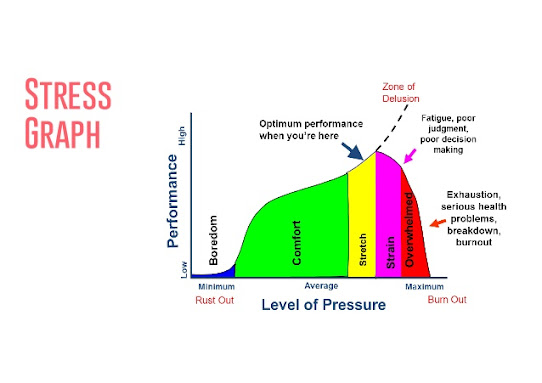Survival strategies for single working parents
- Obtenir le lien
- X
- Autres applications
https://www.monster.com/career-advice/article/single-working-parents
Survival strategies for single working parents
A Monster survey reveals that single parents have unique struggles, but solutions are available.
With work/life balance already a tricky concept for married couples who work, it’s even more of a challenge for those of you doing it on your own. Not only do you have to juggle all of the logistics of child care and working hours, but there’s the financial pressure of managing a household solo, too.
You might find some comfort in knowing that you're not alone. Look at these facts:
- Right now there are more than 16 million U.S. parents with no spouse raising children younger than 18.
- About one-in-five children (21%) are living with a solo mother, as of 2017. And 4% live with a solo dad.
- Among employed single mothers who have children under age 18, 77% work full time.
When you’re juggling the same responsibilities that dual-working-parent households face, but all on your own, it can be very challenging, says Brie Reynolds, senior career specialist for FlexJobs, a platform for finding remote and flexible work. “From figuring out childcare and how to pay for it, to feeling that friction between needing to work and wanting to spend a good amount of time with your children—single parents handle so much without having an in-house partner to share that load,” she says.
That’s why it’s not surprising that in a recent Monster.com survey, 75% of respondents said that they feel that their role as a parent has affected their job search; 66% said it impacted their overall careers.
To help single parents cope with these unique challenges, we connected with experts to share some strategies for balancing single parenting with a fulfilling career.
Identify your biggest pain point and seek solutions
Because every family’s dynamic and financial situation is different, start by figuring out what type of support you need most. For Amber Leahy, a VP and senior corporate communications manager for TD Bank and single mom, childcare is often her toughest obstacle. “Oftentimes the biggest challenge for me is balancing business travel and after-work events,” she says. And since traveling is part of her job, she’s learned to rely on a network of helpers—her siblings, parents and friends, among others. Of course, she says, during normal working days, she’s grateful that her employer is very flexible, which makes her life easier.
Flexibility can mean different things to different people. It might mean having predictable hours with no requirements to stay late; it could be working an earlier shift so you’re home to pick up the kids after school; or it might be working from home a couple of days per week. “Because of the knowledge economy and the advancement of technology and Internet access, there are more jobs than ever before that can be done in a flexible or remote way,” says Reynolds.
On the other hand, even with flexible work hours, a more important factor for many single parents is stable and sufficient income, says Amanda Clayman, Prudential's Financial Wellness Advocate. “In that sense, I actually think it's harder than in generations past,” she says. “With wages remaining flat, and employment becoming more episodic or fluid, many single parents find themselves struggling to make ends meet and create a financial cushion to keep them afloat during transitions.”
Ask for flextime strategically
If you’re already at a company you love, think about asking for additional support that will help you be a better employee and parent. “It all comes down to more control over when, where, and how you work,” says Reynolds. According to the Monster 2020 State of the Candidate survey, time off (39%) and a flexible work schedule (34%) are the second and third most-desired aspects of a job offer, respectively.
For example, perhaps your employer might make accommodations so you have more leeway with your daily start time—as long as your work is done—allowing you time for school drop-off or school bus pickup before work. Or, maybe you can explore a remote option that lets you remain in close proximity to your children without a long commute to worry about should an emergency happen, she adds.
If you decide to talk to your current employer about flexible options, here are some tips to keep in mind as you broach the subject:
Make it about your work. “What employers want to hear is, how will working flexibly make you a more productive worker? Will you be more focused, have more energy, be more productive?” says Reynolds. If there is someone else at your company who works this way, cite them as an example, she adds.
Anticipate your boss's concerns or fears and be ready to address them. Have a plan ready for how you'll communicate with them, what your schedule will look like, how you'll collaborate with your team, and how you'll be available for on-the-spot needs, says Reynolds.
Suggest a trial run. Many managers may be hesitant to automatically allow you to use flexible work options, so suggesting a trial run of 1-2 months can help them adjust to the idea, and allow you to prove that flexibility is a great idea for both of you, says Reynolds.
You might also consider nontraditional work situations such as scaling back to part-time hours, while supplementing your income with freelance work that you can do on your own time—that is, if it makes sense for you. “Freelance jobs can help a single parent take on as much or as little work as they can handle, and that can fluctuate throughout the year depending on the parent's needs,” says Reynolds.
Seek out companies that can meet your specific needs
No matter what is most important to you—whether it’s the ability to work remotely, good benefits, or access to or even a subsidy for daycare—it’s important to do your research when looking for a job, says Melvina Regan, vice president of the Raleigh-Durham, North Carolina office of Keystone Partners, a talent management and outplacement firm. “Take a look at the company’s website, and review areas that speak to the company’s workplace culture and benefits,” she says. Often, when a company offers a flexible work arrangement or telecommuting benefits as examples, those perks will be evident on their employer and career pages.
Leahy says one perk that she takes advantage of is a flexible spending account through TD Bank for her child care. “It’s a pre-tax benefit account used to pay for eligible dependent care services, such as preschool, summer day camp, day care, and more. This year I will save around $2,000,” she says.
To help find companies with a strong track record of hiring working/single parents, you can start by researching those included on best companies for working mothers. Beyond that, read company reviews and explore company social media pages to discover what values they highlight, and what their employees are saying about them.
Once you actually begin an interview process, it’s also smart to look for evidence of people's families in their workspace, like photos or kids' art, says Clayman. This can be a clue that you’re in a family-friendly culture, she says.
Negotiate for the benefits most important to you during the hiring process
In Monster’s survey, 75% of respondents said they will ask about an organization’s policy on flexible work schedules before getting a job offer (22% in the screening call, 53% in an interview). And that’s perfectly acceptable, says Regan.
A recruiter can also help you determine if the company fosters a culture that will be supportive. For example, ask if there’s flexibility to arrive and depart the office, or if the manager or culture drives a set schedule (i.e. 7:30 a.m.–4:30 p.m.). “Having this information is helpful in coordinating child care,” says Regan.
Just be mindful that there is a fine line here between gathering necessary information and unintentionally signaling a lack of commitment to the needs of your employer or demands of the job, says Clayman. “These details, though important, are better to explore as you get toward the end of the process and have already determined that there seems to be a good fit, and a mutual desire to make it work,” she says.
Reynolds echoes that warning: “I wouldn't recommend openly discussing your situation as a single parent, only because that can unfortunately open you up to conscious and subconscious bias from recruiters and hiring managers.” That being said, you can absolutely ask questions about how the company approaches work/life balance, or what it's flexible work policies are, adds Reynolds.
No matter what, if you’re a single parent, you’re facing complexities that other people in the workforce may not. “We need to shop for, cook for, feed, dress, teach, play, and transport our children—all while holding down and tending to our careers,” says Leahy. By selecting an employer that provides benefits and flexibility to accommodate your lifestyle, you will be better equipped to do your best work both on the job and at home.
VOCABULARY:
to Struggle: lutter / se battre, pelear: https://www.collinsdictionary.com/dictionary/english/struggle
Tricky: Difficile, délicat // difícil, delicado: https://www.collinsdictionary.com/dictionary/english/tricky
to Juggle: jongler / hacer malabarismos: https://www.collinsdictionary.com/dictionary/english/juggle
a Household: menage / casa: https://www.collinsdictionary.com/dictionary/english/household
Solo: seul / sól@: https://www.collinsdictionary.com/dictionary/english/solo
a Spouse: époux, épouse / espos@: https://www.collinsdictionary.com/dictionary/english/spouse
Dual - working: avoir deux jobs / tener dos trabajos
in - house: fait en interne ou dans la propre organisation / hecho en casa o en la propia organización: https://www.collinsdictionary.com/dictionary/english/in-house
a Respondent: personne interrogé(e) / encuestad@: https://www.collinsdictionary.com/dictionary/english/respondent
Overall: d' ensemble / en general: https://www.collinsdictionary.com/dictionary/english/overall
Predictable: prévisible: previsible: https://www.collinsdictionary.com/dictionary/english/predictable
Requirement: critère, requis / requerimiento, especificaciones: https://www.collinsdictionary.com/dictionary/english/requirement
Shift: équipe, poste / turno: https://www.collinsdictionary.com/dictionary/english/shift
Prudential: prudentiel / prudencial: https://www.collinsdictionary.com/dictionary/english/prudential
Wellness: bien - être/ bienestar: https://www.collinsdictionary.com/dictionary/english/wellness
Actually: réellement, vraiment, en effet / realmente, en efecto: https://www.collinsdictionary.com/dictionary/english/actually
Wages: salaire / salario: https://www.collinsdictionary.com/dictionary/english/wages
Flat: plat, invariable / plano, invariable: https://www.collinsdictionary.com/dictionary/english/flat
Episodic: épisodique / por temporadas: https://www.collinsdictionary.com/dictionary/english/episodic
to make ends meet: joindre les deux bouts / no gastar más de lo que se tiene, llegar al final del mes: https://www.collinsdictionary.com/dictionary/english/make-ends-meet
a Cushion: un coussin / un cojíon: https://www.collinsdictionary.com/dictionary/english/cushion
Afloat: maintenir quelque chose à flot / mantenerse: https://www.collinsdictionary.com/dictionary/english/afloat
Flextime: horaire flexible / horario flexible: https://www.collinsdictionary.com/dictionary/english/flextime
to Come down: descendre, baisser / disminuir: https://www.collinsdictionary.com/dictionary/english/come-down
Time off: congé / baja, vacaciones: https://www.collinsdictionary.com/dictionary/english/time-off
to make accommodations: s' adapter / adaptarse: https://www.collinsdictionary.com/dictionary/english/accommodation
Leeway: avoir une certaine liberté d'action / tener cierta libertad de acción: https://www.collinsdictionary.com/dictionary/english/leeway
(school) drop - off: déposer quelqu' un / dejar a alguien (en un sitio):
to Pick up: prendre / recoger, buscar: https://www.collinsdictionary.com/dictionary/english/pick-up
to Commute: faire la navette / viajar diariamente al trabajo: https://www.collinsdictionary.com/dictionary/english/commute
to broach: aborder / mencionar: https://www.collinsdictionary.com/dictionary/english/broach
to address: s' adresser, prendre la parole devant / tratar un tema: https://www.collinsdictionary.com/dictionary/english/address
Trial run: un essai / un periodo de prueba. https://www.collinsdictionary.com/dictionary/english/trial-run
On - the - spots: immédiatement / de inmediato: https://www.collinsdictionary.com/dictionary/english/on-the-spot
Scale back: réduire / reducir, achicar: https://www.collinsdictionary.com/dictionary/english/scale-down
Part - time: à temps partiel / a media jornada: https://www.collinsdictionary.com/dictionary/english/part-time
to take on: accepter / hacerse cargo de : https://www.collinsdictionary.com/dictionary/english/take-on
to Seek out: chercher, demander conseil/ buscar, pedir consejo: https://www.collinsdictionary.com/dictionary/english/seek-out
Subsidy: subvention / subvención: https://www.collinsdictionary.com/dictionary/english/subsidy
Outplacement: agence de placement / agencia de recolocación (trabajo): https://www.collinsdictionary.com/dictionary/english/outplacement
Perk: avantage, à côté (du poste) / beneficio, ventaja: https://www.collinsdictionary.com/dictionary/english/perk
Eligible:
Screening call:
to foster
to echo
biais
to hold down
- Obtenir le lien
- X
- Autres applications














Commentaires
Enregistrer un commentaire